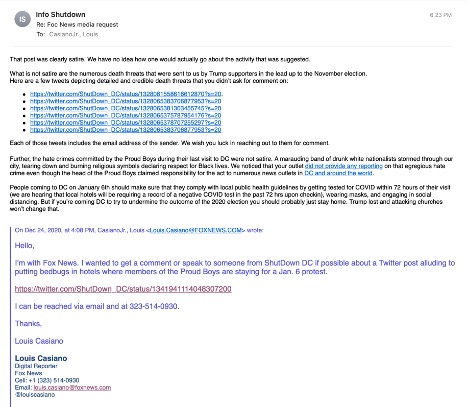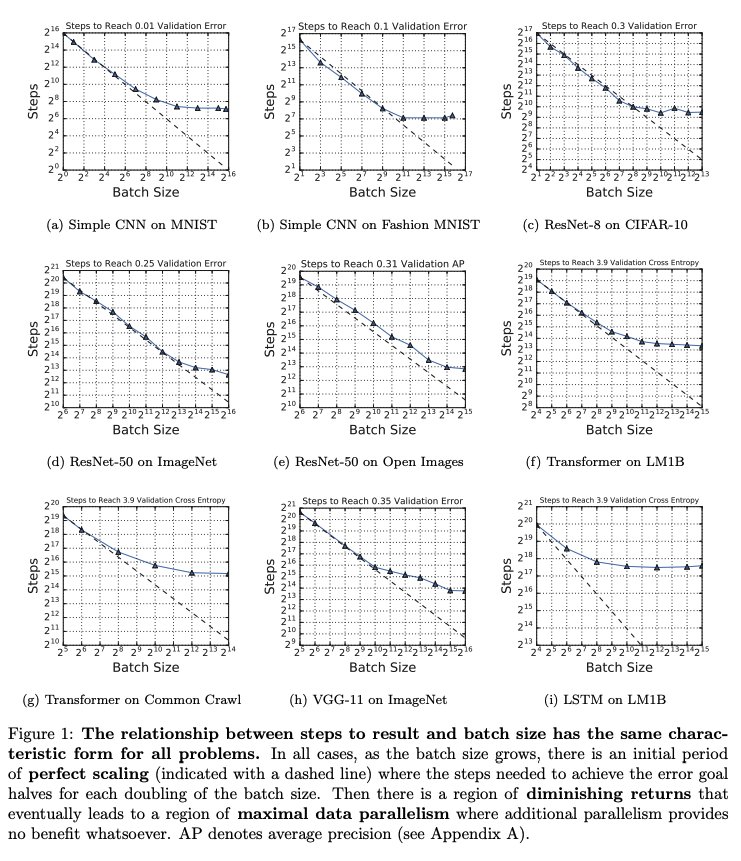"Attacking him how? Yelling at him? Yes. Okay, I apologize. Can we move on?"
She's on video running and tackling him. She physically attacked him.
The 22-year-old woman caught on camera allegedly physically attacking a 14-year-old Black teen and falsely accusing him of stealing her phone was arrested in California.
— CBS This Morning (@CBSThisMorning) January 8, 2021
In an exclusive interview, Miya Ponsetto and her lawyer spoke with @GayleKing hours before she was arrested. pic.twitter.com/ezaGkcWZ8j
More from Alexandra Erin
More from News

That post was clearly satire. We have no idea how one would actually go about the activity that was suggested.
What is not satire are the numerous death threats that were sent to us by Trump supporters in the lead up to the November election.
Here are a few tweets depicting detailed and credible death threats that you didn’t ask for comment on:
https://t.co/UiI12M0Aey.
https://t.co/PPe75XWImX
https://t.co/4Ia8659wK8
https://t.co/n5ov6R8Gyh
Yup. They have no interest in public safety. Inspector Glover is doing everything he can to support @realDonaldTrump's coup. @MayorBowser get your cops in line. pic.twitter.com/VAAu58v7N5
— ShutDownDC (@ShutDown_DC) November 15, 2020
Each of those tweets includes the email address of the sender. We wish you luck in reaching out to them for comment.
Further, the hate crimes committed by the Proud Boys during their last visit to DC were not satire. A marauding band of drunk white nationalists stormed through our city, tearing down and burning religious symbols declaring respect for Black lives.
Gaza strip being bombed ~ 1 hour ago
— Nabeel Yakzan (@MarxistBastard) December 26, 2020
Absolutely 0 media coverage locally or internationally pic.twitter.com/ZLwWcQDwXb
video
\u0647\u0644 \u0647\u0630\u0627 \u0647\u0648 \u0627\u0644\u0633\u0644\u0627\u0645 \u0627\u0644\u0630\u064a \u062a\u062f\u0639\u0648 \u0639\u0644\u064a\u0647 \u0625\u0633\u0631\u0627\u0626\u064a\u0644 \u0645\u0646\u0630 \u0627\u062d\u062a\u0644\u0627\u0644\u0647\u0627 \u0644\u0647\u0630\u0647 \u0627\u0644\u0623\u0631\u0636\u061f
— \u0645\u062d\u0645\u062f \u0627\u0644\u062a\u0648\u064a\u062c\u064a (@mohammed500s) December 26, 2020
\u0627\u0644\u0642\u0635\u0641 \u0627\u0644\u0627\u0633\u0631\u0627\u0626\u064a\u0644\u064a \u0639\u0644\u0649 \u063a\u0632\u0629 \u0627\u0644\u0644\u064a\u0644 \u0627\u0644\u0645\u0627\u0636\u064a\u0629#\u063a\u0632\u0629#\u0627\u0644\u062a\u0637\u0628\u064a\u0639_\u062e\u064a\u0627\u0646\u0629_\u0644\u0644\u0627\u0646\u0633\u0627\u0646\u064a\u0629
Is this the peace that Israel claims to have spread since its occupation of this land?
The Israeli bombing of Gaza last night#Gaza#\u063a\u0632\u0629_\u062a\u062d\u062a_\u0627\u0644\u0642\u0635\u0641 pic.twitter.com/8ouV1nuXc7
Cabinet has been summoned for call at lunchtime. Lots of concern about new data on virus in parts of England, feels like fast moving situation. https://t.co/308YsJEVGw
— Nick Eardley (@nickeardleybbc) December 19, 2020
The new variant in the UK consists of several mutations in the spike protein, including ΔH69/ΔV70 deletions & other receptor binding domain mutations such as N501Y.
The variant is described here in this pre-print from @GuptaR_lab.
https://t.co/ui2U1r1ANA

The ΔH69/ΔV70 variant continues to increase quite rapidly as a proportion of overall positives (roughly doubling in the last 2 to three days), and is apparently now the dominant strain in test positives in some regions.
Extensive efforts have gone into enhanced surveillance for the ΔH69/ΔV70 deletion with and without RBD mutations, and it is good that we are aware of this.
There is a need for calm and rational thinking, and more evidence is needed.
But the early data is certainly concerning



























